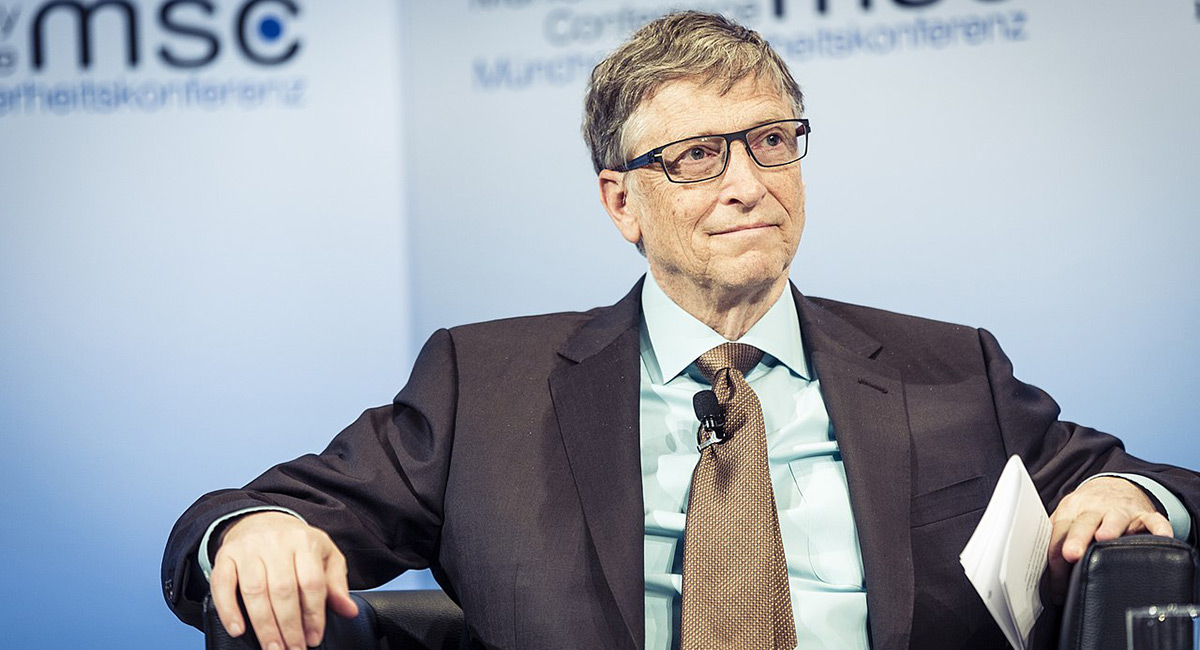Bill Gates has been in the news recently—but for all the wrong reasons. His book How to Avoid a Climate Disaster: The Solutions We Have and the Breakthroughs We Need is far more significant to the body politic than his other recent appearances in the news. The book reads (of course) like a dystopian novel, replete with all the standard climate-change nonsense the thinking world encountered, then summarily dismissed, in Earth in the Balance by Al Gore, another figure known to the public as one thing (politician, in Al’s case) but coveting something else—the mantle of an environmental prophet.
Prophet Bill, like the earlier Prophet Al, is (of course) upset by greenhouse gases—really upset. To rid the planet of them, particularly in the form of that non-pollutant gas called carbon-dioxide, Mr. Gates cries out for draconian governmental action and tortuous personal practices to achieve a zero-carbon world—despite that carbon is a key building-block of all life on Earth.
Mr. Gates wants a world with no oil, no gas, no coal, no cement or steel manufacturing, no fertilizers, and no meat consumption. All of us vegans then will drive, Mr. Gates decrees, electric cars and we really will enjoy solar and wind energy, as if last winter’s grid collapse in Texas has been memory-holed. The left used to want to force us to be free (a la Jean-Jacques Rousseau); now it just wants us to be miserable.
But Mr. Gates misses the basic question: Is carbon dioxide really an existential threat? If he had met the late renowned physicist Fred Singer or read his landmark book, Hot Talk, Cold Science: Global Warming’s Unfinished Debate, Mr. Gates would know the answer. Plants benefit immensely from enhanced carbon-dioxide concentrations—just ask commercial greenhouse operators why they pump in carbon dioxide up to four times that of the ambient atmosphere. Humans benefit too: cold temperatures kill far more people and result in much more hardship than warm temperatures. Historically, civilizations thrive when global temperatures are warmer and suffer when they fall.
And if Mr. Gates had read Fred Singer, Mr. Gates would also know that whatever trivial warming the Earth may be experiencing is not due to human activity but almost entirely due to the normal cycle of heating and cooling the ever-changeable weather has visited upon the planet for eons. Scientist Singer proclaimed there is no climate crisis now or in the foreseeable future.
To his credit, Mr. Gates admits that wind and solar will not meet our present energy demands. His solution? Nuclear energy. But for the past 50 years, the United States has eschewed the building of new nuclear plants. We can thank the 1979 film “The China Syndrome” for that. And current public sentiment about nuclear power, particularly in the wake of Japan’s 2011 Fukushima catastrophe, is not likely to change.
But what about geothermal energy and such futuristic-sounding sources as cold-fusion nuclear power, batteries that can store gigawatts of energy, and even alternatives to cement? Great ideas, but none, as everybody admits, will be realized, except maybe in some far distant future, if ever.
Without question, cheap and plentiful fossil fuels are needed just to keep pace with humanity’s energy needs—especially those of the desperately poor. But what about the left’s mawkish crooning about the starving, suffering masses? Is it all for show? It is positively criminal to force poor nations to go without energy, thereby keeping them poor, just to satisfy an irrational need among the pampered rich nations of the Earth to get to zero carbon emissions. But, of course, it is all about control.
Earth in the Balance worked wonders for Al Gore’s career. Maybe Mr. Gates will also receive a Nobel Prize for his book. If he does, that award will be even more meretricious than it already is.









